Healthcare IOT Services
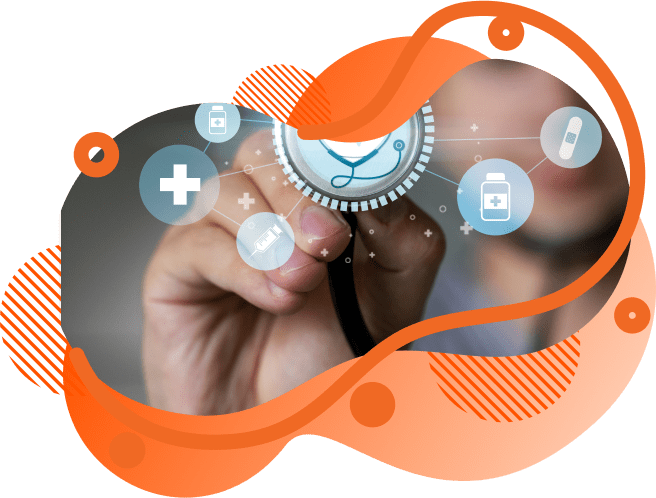
Remote Patient Monitoring (RPM)
- Real-Time Health Tracking – Monitor patient vitals like heart rate, blood pressure, oxygen levels, and glucose remotely.
- Early Diagnosis & Alerts – AI-powered systems detect anomalies and send alerts to healthcare providers.
- Seamless Data Integration – Syncs with EHR/EMR systems for better clinical insights.
IoT-Enabled Hospital Management
- Asset Tracking & Management – IoT-based RFID and beacon technology for real-time tracking of medical equipment.
- Smart Beds & Connected Devices – Automated bed monitoring to enhance patient comfort and safety.
- Optimized Resource Utilization – AI-powered IoT tools to manage hospital workflow and staffing.
Predictive Maintenance for Healthcare Equipment
- IoT-Based Predictive Analytics – Prevents equipment failures before they happen.
- Reduced Downtime & Maintenance Costs – Smart scheduling for hospital infrastructure.
- Automated Alerts & Performance Monitoring – Ensures continuous functionality of medical devices.
Smart Wearable Devices
- IoT-Powered Wearables – Smart watches, fitness bands, and biosensors for real-time patient tracking.
- Data Analytics & Reporting – Collects and analyzes health metrics for better preventive care.
- Personalized Health Recommendations – AI-driven insights for customized wellness plans.
Smart Medical Devices & IoT Integration
- Connected Medical Equipment – IoT-powered infusion pumps, ventilators, and diagnostic devices.
- Secure Cloud-Based Data Sharing – HIPAA-compliant, end-to-end encrypted cloud storage.
- AI-Powered Diagnostics – IoT-enabled imaging devices for faster and more accurate disease detection.
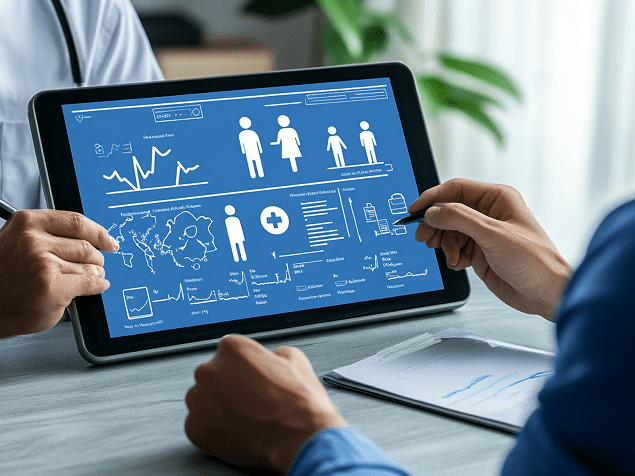
Overview Of The Healthcare IoT Market
- The global IoT in healthcare market was valued at $89.07 billion in 2023 and is projected to reach $446.52 billion by 2030, growing at a CAGR of 25.9%.
- The rise of remote patient monitoring (RPM), wearable health tech, and smart hospital solutions is fueling this rapid expansion.
Rising Demand for Remote Patient Monitoring (RPM)
- Telehealth and IoT-driven RPM solutions help doctors track patient vitals in real-time.
- Wearable sensors, smart ECG monitors, and glucose trackers improve chronic disease management.
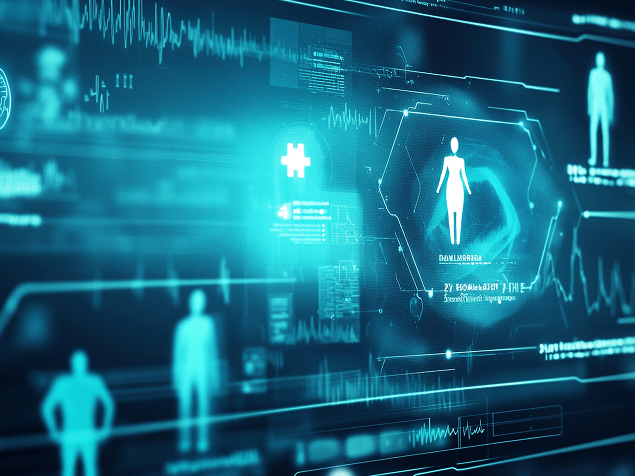
Integration of AI & Big Data Analytics
- IoT generates vast patient data, which AI-powered algorithms analyze for predictive healthcare insights.
- Hospitals leverage machine learning models to forecast patient deterioration and optimize treatment plans.
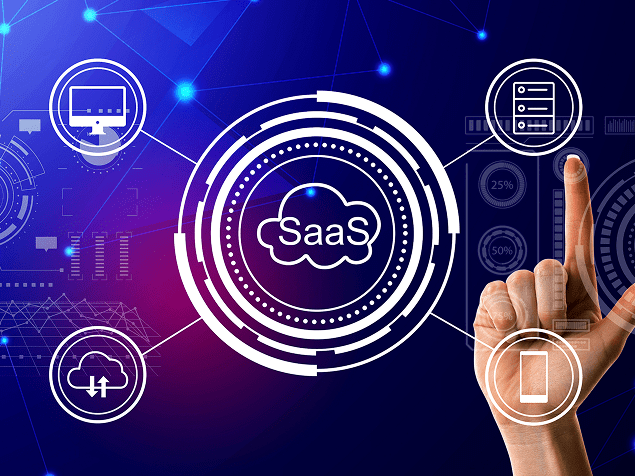
IoMT System Architecture
The global IoMT market is projected to reach $285.5 billion by 2029, driven by remote patient monitoring (RPM), wearable devices, and AI-powered healthcare solutions.
Remote Patient Monitoring (RPM) Systems
- Smart Wearables (Smartwatches, ECG Monitors, Blood Pressure Monitors, Smart Rings)
- Implantable Devices (Pacemakers, Smart Insulin Pumps, Neurostimulators)
- AI-Driven Health Alerts for Chronic Disease Management (Diabetes, Hypertension, Cardiac
AI-Integrated Telemedicine & Virtual Healthcare
- IoMT-powered virtual consultations with real-time health data integration.
- AI chatbots & virtual assistants for instant patient support.
- Cloud-based electronic health records (EHRs) for seamless patient data access.
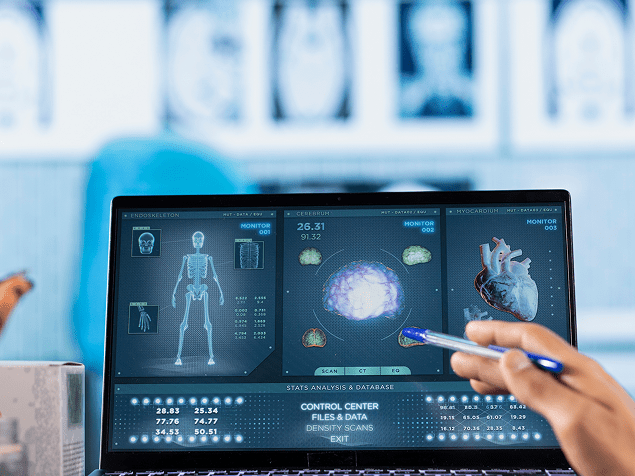
IoMT-Powered Smart Hospitals & AI-Driven Automation
- AI-powered IoMT solutions optimize hospital operations through:
- RFID & Bluetooth-Based Asset Tracking
- AI-Powered Smart ICUs & Connected Medical Devices
- Automated Medicine Dispensing Systems & AI-Enabled Smart Beds
Do you want to battle-test your software with our Quality Engineering team?
Increased patient safety and satisfaction.
Improved headquarters visibility into the condition of distant sites is beneficial for major health systems.
Predictive maintenance reduces the chance of medical equipment failures.
Fewer personnel overloads as a result of automated routine chores (e.g., medical asset disinfection, patient health parameter measurement).
Predictive maintenance reduces the chance of medical equipment failures.
Tracking of mobile assets and improved insight into the use of medical assets.
Scripting languages
Java
Kotlin

Python
WebdriverJS
C#
Advising on the introduction of IoMT
Our IoMT Consulting Services
1. IoMT Strategy & Roadmap Development
2. IoMT Device Integration & Interoperability
3. Security & Compliance Consultation
4. IoMT Data Analytics & AI Implementation
Creation of IoMT Software Items
How does IoT improve patient care in healthcare?
What are some common applications of Healthcare IoT?
- Remote Patient Monitoring (RPM) – Continuous tracking of patient vitals.
- Smart Wearables – Devices that monitor heart rate, blood pressure, glucose levels, etc.
- Smart Hospital Management – IoT-enabled beds, asset tracking, and inventory management.
- Connected Medical Devices – Smart infusion pumps, ECG monitors, and diagnostic tools.
- AI-Powered Healthcare Analytics – Predictive insights from IoT-generated data.
Is Healthcare IoT secure?
What are the challenges of implementing IoT in healthcare?
- Data Security & Privacy Concerns
- Interoperability Issues with Existing Systems
- Regulatory Compliance Requirements
- Network Reliability & Latency Issues
- Scalability of IoT Infrastructure
What is the future of IoT in healthcare?
- AI-driven IoT for predictive healthcare analytics.
- Blockchain-based IoT security for enhanced data protection.
- 5G-enabled IoT for ultra-fast data transmission and real-time telemedicine.
- IoMT (Internet of Medical Things) expansion for connected healthcare ecosystems.